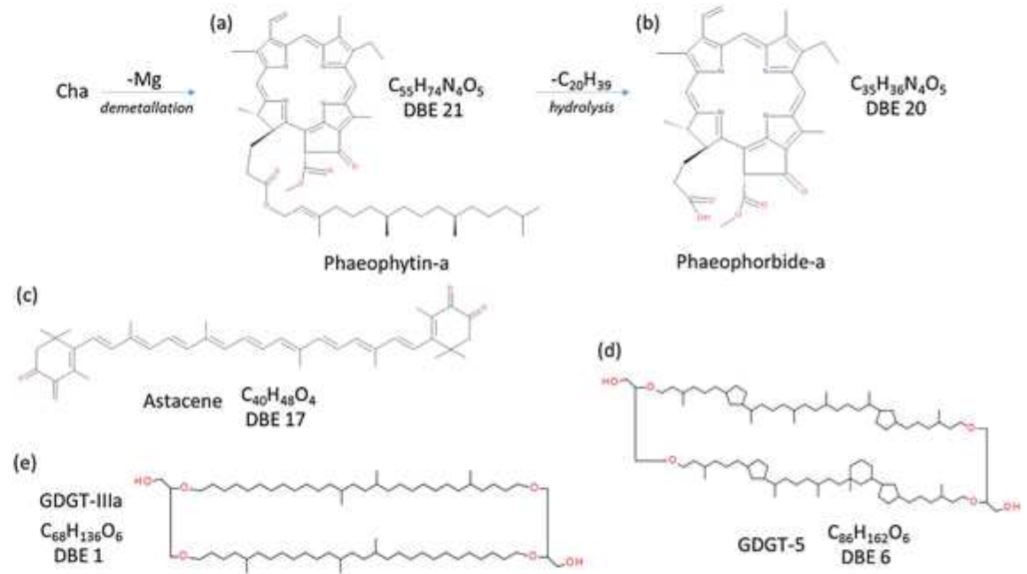
A rapid method to assess a broad inventory of organic species in marine sediments using ultra-high resolution mass spectrometry
Abstract:
Rationale: A broad range of organic species in marine sediments is routinely used as biogeochemical proxies of Earth history. These species are typically analyzed using different analytical methods, targeting very specific components and often including time-intensive sample preparation. There is, therefore, a need for a more comprehensive, rapid and high-throughput approach to simultaneously analyze a broad range of known sedimentary polar species and also have a surveillance capability able to identify candidate new species classes.
Methods: Whole solvent extracts from recently deposited Gulf of Mexico marine sediments were obtained after a simple, one-step extraction. They were analyzed by Fourier transform ion cyclotron resonance mass spectrometry (FTICR-MS), using atmospheric pressure photoionization in positive ion mode (APPI-P), over a broad mass range (m/z 150-1500).
Results: From 3000 to over 5000 peaks per sample were assigned molecular formulae, and the majority of assignments (90%) showed an absolute error lower than 200 ppb. The detected species belong to the NO1-7 , N4 O2-8 , O1-9 , HC, N and OS compound classes, including known biomarker species such as pigments (e.g. tetrapyrrole macrocycles and carotenoids) and lipids (e.g. glycerol dialkyl glycerol tetraethers, GDGTs), but also compounds of still unknown detailed molecular structure, but with clear potential geochemical relevance.
Conclusions: The reported method enables rapid (12 min FTICR-MS analysis time) and simultaneous detection of a broad range of multi-heteroatom, polar organic species in whole sediment extracts. This allows for higher sample throughput, a more comprehensive investigation of sedimentary geochemistry, and potentially the discovery of new components and derivation of novel, multi-species proxies. Copyright © 2016 John Wiley & Sons, Ltd.


